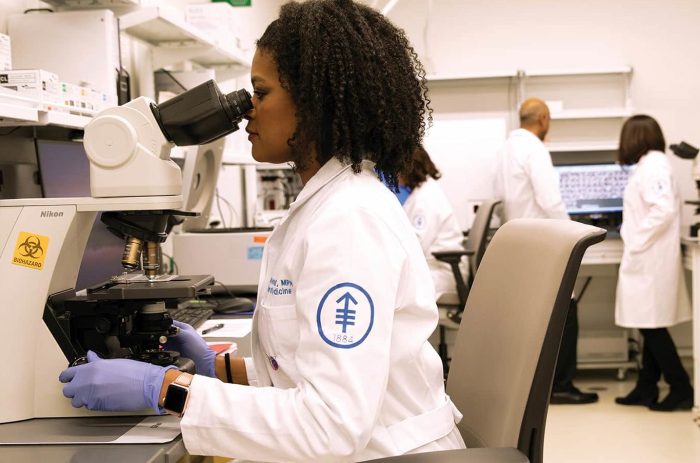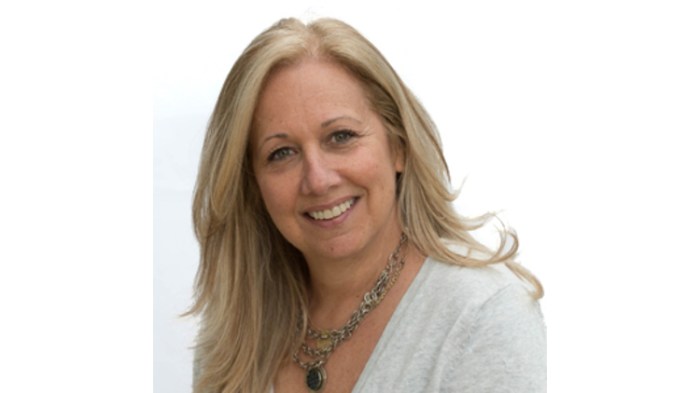Genetic testing has become a game changer in the screening and prevention of certain inherited cancers.
“We have come a long way in terms of what we call cancer interception – testing individuals for genetic background, screening and prevention,” said Dr. Noah David Kauff, chief of cancer genetics at Northwell Health Cancer Institute in Lake Success. “For certain inherited cancers, we can greatly reduce a patient’s risk of developing cancer.”
A wide range of genetic tests is available today, said Lucas Hollifield, a certified genetic counselor with NYU Langone Health Perlmutter Cancer Center. “We have progressed significantly from about 10 years ago, when we only offered genetic testing for the [BReast CAncer gene 1] BRCA1 and BRCA2 gene mutations,” which are associated with a high risk of breast and ovarian cancer and certain other cancers.
Genetic research ramped up in the wake of a 2013 U.S. Supreme Court decision that ruled human genes cannot be patented because DNA is a “product of nature.” Prior to the ruling in Association for Molecular Pathology (AMP) v. Myriad Genetics, Inc., 4,300 human genes had been patented. The high court’s decision invalidated those patents, clearing the way for wide-scale research and commercial genetic testing.
Genetic counseling is increasingly recommended for patients who have been diagnosed or have a family history of certain cancers.
“We have seen a 10% increase in patients referred for genetic counseling over the last four years,” said Gwen Goldstein, a certified genetic counselor with Stony Brook University Hospital. In addition to the fact that more genetic mutations can be tested for, “tests have become less expensive and the guidelines for testing have become more liberal,” which means the tests are more likely to be covered by insurance, she said. Goldstein said she has seen patients referred for testing for mutations associated with about 20 different types of cancer this year. But testing is much more common for certain cancers.

According to Dr. Kauff, “Patients diagnosed with breast, colon or uterine cancer prior to age 60, or ovarian, pancreatic or metastatic prostate cancer at any age should have a genetic assessment. People with family members with those cancers – breast, colon or uterine cancer prior to age 60, or ovarian, pancreatic or metastatic prostate cancer at any age – should speak to their doctors about whether genetic counseling and testing would be beneficial.”
People with a family history of cancer should bear in mind that the majority of cancers are not hereditary.
“Only 5% to 10% of the people we meet with will have something that comes back on the hereditary testing,” Hollifield said.
A patient with a family history of breast cancer might have a panel of tests done. “About a dozen genes can play a role in the development of breast cancer, but they will not have the same impact on risk,” Dr. Kauff said.
In the general population, about 12% of women will get breast cancer in their lifetime, and 2% will get it by age 50, Dr. Kauff said.
“Women with the BRCA1 or BRCA2 mutation can have a 60% to 80% risk of developing breast cancer in their lifetime and a 26% to 40% percent risk of getting it by age 50,” he said. The latter equates to a 13- to 20-fold increased risk of early-onset breast cancer.
In addition to the BRCA1 and BRCA2 mutations, which are rare, there are other more common mutations that increase risk of breast cancer, but to a lesser degree.
“We identify strategies that may be appropriate based on the individual’s risk,” Dr. Kauff said. More aggressive strategies would be recommended for someone with a BRCA1 or BRCA2 mutation versus a mutation that is associated with, say, a two-fold increase in lifetime risk.
“Depending on the patient’s level of risk and goals, the strategy might call for more intensive and earlier screening, as early as age 25, with breast MRI in addition to annual mammography,” Dr. Kauff said. “We can also talk about medications to reduce breast cancer risk, such as tamoxifen, and risk-reducing surgical options, such as a preventive bilateral mastectomy.” For many people, he said, the latter would seem like a drastic strategy, “but to individuals who have lost multiple family members to breast cancer or who have a 1 in 3 chance of getting breast cancer before age 50, it may not seem so drastic and it may be a good strategy,” he said.
“We provide patients with both pre-test and post-test counseling,” Goldstein said. “Before the test, we educate them about what the test may tell us and what the implications of a positive result might be. If they test positive, we go into more detail at the follow-up visit.”



































